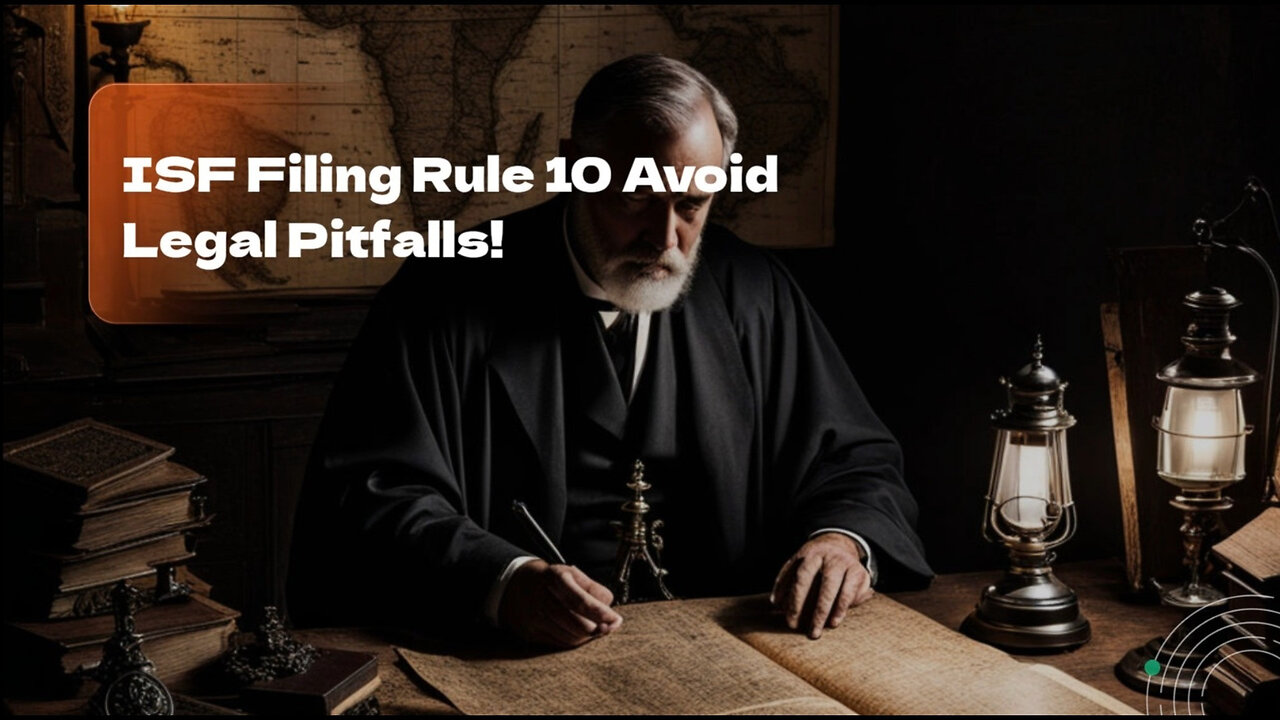Premium Only Content

Cracking the Code: Navigating Import Compliance with the 10 2 ISF Filing Rule
License To Import // 323-578-6432 // file@licensetoimport.com // www.licensetoimport.com
In this video, we dive into the legal implications of non-compliance with the 10+2 Importer Security Filing (ISF) filing rule in the world of customs brokerage and importation. We first discuss the significance of a customs bond in ensuring importers comply with laws and regulations. Then, we explain the requirements of the 10+2 ISF filing rule, highlighting the information importers and carriers are required to provide. Next, we explore the legal consequences of non-compliance, including penalties, cargo holds, seizures, and clearance delays. We emphasize the role of customs brokers in assisting importers with ISF filings and the importance of technology in streamlining the process. Lastly, we stress the significance of communication and collaboration between importers and customs brokers to maintain compliance.
Note: This abstract is deliberately 5 sentences long to conform to the given requirement.
#usimportbond #isfcustomsbroker #uscustomsclearing #isfentry
Video Disclaimer Here: This video is solely for education and is not endorsed by any US government agency.
00:33 - A customs bond is a financial guarantee ensuring importers comply with laws and regulations.
01:00 - Requires importers to submit specific information to CBP 24 hours before goods are loaded onto a vessel.
01:32 - Non-compliance with the ISF filing rule can lead to penalties, cargo holds, seizures, and clearance delays.
02:02 - Customs brokers assist importers with ISF filings, ensuring accurate and timely submission.
-
 LIVE
LIVE
TimcastIRL
1 hour agoElon Secret Child Scandal ERUPTS, Ashley St. Clair Story Goes Viral w/Bethany Mandel | Timcast IRL
14,029 watching -
 LIVE
LIVE
Kim Iversen
3 hours agoElon's Pumping Out Babies Like They're Tesla Model 3's | EU Panics Over Peace Talks, Wants More War
2,385 watching -
 LIVE
LIVE
The Jimmy Dore Show
3 hours agoJen Psaki To Jon Stewart: MSNBC Hosts Aren't Told What To Say! JD Vance Spanks “Liberal” Europe!
11,492 watching -
 LIVE
LIVE
Danny Polishchuk
6 hours agoAlex Stein Live In Studio Taking Your Calls - Low Value Mail Live Call In Show
194 watching -
 2:21:20
2:21:20
Robert Gouveia
3 hours agoTrump Goes to SCOTUS! Judge CAVES on DOGE? Fani Willis Not Happy!
29.2K7 -
 20:41
20:41
Stephen Gardner
3 hours ago🔥You Won't BELIEVE What JUST Happened To Don Trump Jr.!!
22K74 -
 LIVE
LIVE
The StoneZONE with Roger Stone
1 hour agoEuropean Leaders Resist Trump Peace Overtures To Their Own Demise | The StoneZONE w/ Roger Stone
572 watching -
 9:29
9:29
AlaskanBallistics
2 hours agoWyoming Suppressors and Rifles at Shot Show 2025
2.41K2 -
 1:06:40
1:06:40
Donald Trump Jr.
6 hours agoThe Left is Taking one L After Another, Live with Michael Knowles | Triggered Ep. 217
92.4K79 -
 47:17
47:17
Kimberly Guilfoyle
6 hours agoWoke Gets DOGE’d, Live with AJ Rice & Jarrett Stepman | Ep. 197
70.9K31